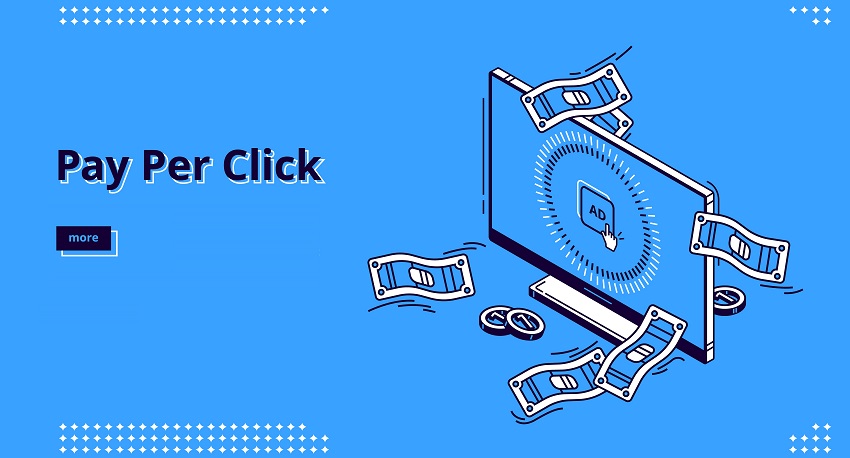Pay-per-click advertising is the most known form of digital marketing. Before creating any PPC plan or investing in any ad campaign, it is imperative to understand why PPC is vital for the expansion of online businesses.
The main benefit of this marketing tactic is that it is recognised as one of the best forms of online advertising. One of the most popular types of advertising, it produces significant returns quickly as PPC visitors are also much more likely to convert, which helps a business appear more frequently on Google or Bing.
It can consistently and rapidly produce results
Potentially, this is the biggest advantage of using PPC. In contrast to SEO, which focuses on increasing “organic” traffic, PPC advertising can give marketers results practically immediately after their ads go up.
PPC is essential for businesses who want to make money quickly or make the most of marketing opportunities that are only available for a limited time. PPC actually has a significant impact on both short-term and long-term digital marketing plans for general advertising techniques.
Advertisers use the gateway of each platform to construct their search advertising for Google or Bing. They establish a budget, and develop their advertising campaigns. Once the advertisements are live, they can immediately begin to appear in search results and produce clicks and conversions. The campaign scope, keyword targeting, focus on high-value audiences, and application of bid strategies can all be improved with the use of this data.
PPC is significant because it may be used to concentrate on high-value marketing characteristics while reducing or eliminating spending on short-term ineffective campaign characteristics.
PPC aids in your financial and professional success
PPC is essential, despite the fact that it can seem obvious because it directly impacts a company’s key performance metrics and has the potential to boost revenue in a substantial way.
Most PPC platforms use campaign goals, allowing businesses to focus on precise business goals:
Search engine advertising can be made to achieve a range of objectives, such as generating leads, brand awareness, app downloads, and much more.
PPC is one of the most well-liked and successful types of online advertising, and the numbers speak for themselves.
Search engines and social networking websites are among the internet components that almost every web user frequently interacts with. Neglecting PPC is the same as ignoring a crucial component of online consumer behaviour. Since you just pay for clicks, you have more control over your finances.
Because this advertising is entirely focused on budget, it enables a better level of control than old-style paid advertising strategies. Popular paid ad formats like search engine PPC also only charge for clicks! There is no entrance fee and no set amount must be spent on advertising.
The value of PPC resides in its ability to maximise spending for a higher return-on-ad-spend. Because firms may boost ad spend for locations that work and cut ad spend in areas that don’t, PPC gives high degrees of control that work in contrast to traditional paid advertising.
PPC and SEO for search engines have a lot in common, therefore they complement one another nicely. PPC and SEO work best when combined because businesses will employ the same audiences, platforms, and keywords to reach them.
Paid ad clicks can help your pages climb to the top of Google’s page one, which can lead to increased sharing, mentions, and backlinks, all of which benefit your SEO results.
Data is yet another element that contributes to PPC’s importance. A lot of feedback is provided on ad campaigns by advertising platforms like Google Ads and Microsoft Advertising. The information marketers gain from keyword research, keyword performance, conversions, impression share, etc. can be used to fine-tune their SEO campaign.
Because search PPC yields results much more quickly than SEO, it is also viable to test keyword strategies in PPC and then utilise conversion rate and traffic statistics to determine whether comparable techniques would be useful for long-term SEO.
Data gathering and analysis to better advertising
Another advantage of PPC that older non-digital approaches lack is a wealth of feedback information. To improve their PPC campaigns, marketers can track a range of KPIs for specific keywords, target markets, devices, demographics, and more. The value of PPC hinges on a business’s ability to effectively read its data, adapt its ad campaigns, wait for new data to come in, and then evaluate the performance of its changes.
Incredibly detailed data and ad management are available to marketers in this branch of marketing. Since these changes can lead to considerable budget reductions and even higher ROI, PPC is essential in modern marketing.
Even though they vary from platform to platform, PPC leverages all of these techniques, making it crucial for advertisers who place a high value on data.







